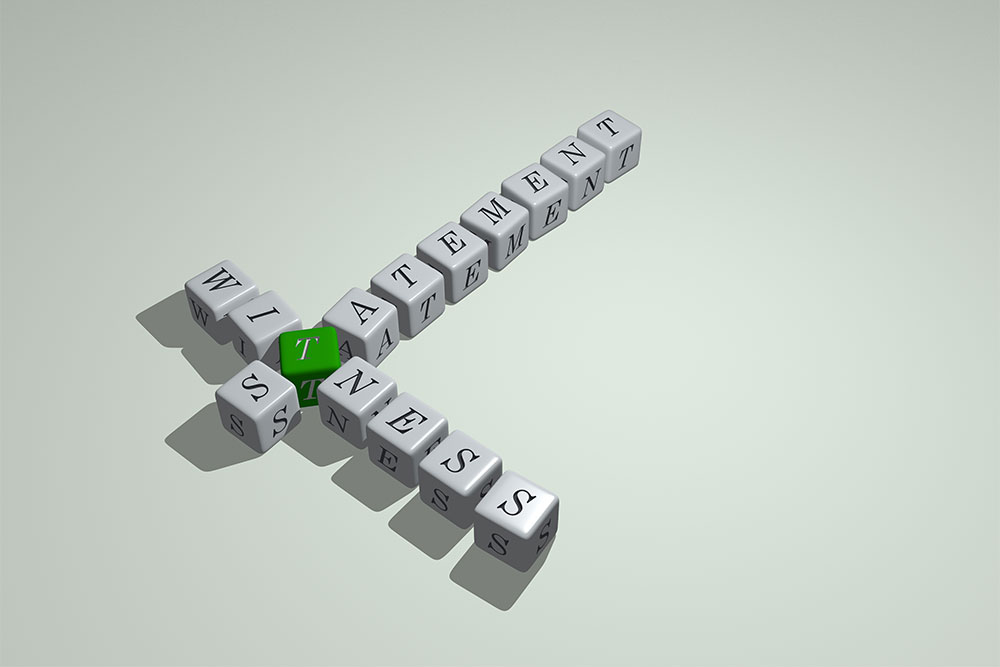Dealing with a long-term illness or sudden disability while appealing a denial of disability benefits can be incredibly stressful. That is why it is important to include all relevant information in the appeal in order to have the best chance to receive a favorable decision from the insurance company. While treating physicians and medical records can provide a foundation for how your disability is affecting you physically, a witness statement from a spouse, relative or close friend can provide the insurance company with a window into the day-to-day challenges you face due to your disabling condition.
Table of Contents
What Is a Witness Statement?
A Witness Statement is a letter detailing the observations and impressions of the author. Generally, it is written in an informative style, in language the writer would generally use. This is a chance for your family, friends, and co-workers to describe how your behavior has changed since your disability. This is not a legal letter; and it should not sound like it is coming from an attorney. The witness statement should be more personal. It is okay for the author to provide their opinion, detail a specific instance where they personally saw how your disability has changed your behavior. For instance, they can describe how “since your disability, you have not attended any family reunions, or can no longer drive, or how you tire easily and need to rest throughout the day, etc.” A witness statement should convey to the insurance company how the author has witnessed your disabling condition affecting your life.
Who Should You Ask to Write a Witness Statement?
Depending on the circumstances of your particular illness/condition, it may be helpful to get witness statements from close family members as well as friends, former co-workers, or neighbors. Having a variety of perspectives from people in different areas of your life, can give the appeals specialist a richer picture of how your day-to-day activities have been impacted.
What Are the Most Important Things to Remember?
Honesty. You want the author of a witness statement to be completely honest. It is important that the author does not embellish, but provides an accurate, account of their observations.
Including witness statements with your appeal will not guarantee a favorable outcome. Unfortunately, nothing can guarantee an approval of benefits. However, witness statements can support your claim for disability benefits, and provide the insurer with more information than is generally contained in your medical records.
Learn How We Can Help Your Disability Insurance Claim or Appeal
How Can a Witness Statement help?
Disability insurers are required to give “full and fair consideration” to evidence provided during the appeal process. See Rekstad v. U.S. Bancorp, 451 F.3d 1114 (10th Cir. 2006). The Rekstad decision went on to state “witness statements are relevant and must be taken into consideration, along with the other medical evidence presented.” This has become the standard in disability insurance cases throughout the country. This means that having witness statements in your appeal and if necessary, a part of the court record, can help bolster the medical evidence provided by your physicians.
Private disability appeals are submitted on paper to the insurance company for review. Unlike hearings before the Social Security Administration, you are not offered a chance to call witnesses, or present evidence in person. Therefore, witness statements from family members, close friends, and/or former co-workers can provide valuable context to the appeal specialist reviewing your claim.







